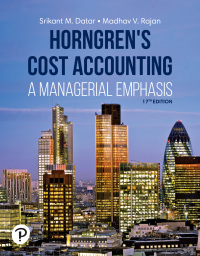Refer to the information presented in Exercise 20-24. The head of the registration advisors at BU has
Question:
Refer to the information presented in Exercise 20-24. The head of the registration advisors at BU has decided that the advisors must finish their advising in 2 weeks (10 working days) and therefore must advise 420 students a day. However, the average waiting time (given a 12-minute advising period) will result in student complaints, as will reducing the average advising time to 10 minutes. BU is considering two alternatives:
Data From Exercise 20-24
The registration advisors at the Brunendorf University (BU) in Berlin help 4,200 students develop their class schedules and register for classes each semester. Each advisor works for 10 hours a day during the registration period. BU currently has 10 advisors. While advising an individual student can take anywhere from 2 to 30 minutes, it takes an average of 12 minutes per student.
During the registration period, the 10 advisors see an average of 300 students a day on a first-come, firstserved basis.
Required
a. Hire two more advisors for the 2-week (10-working day) advising period. This will increase the available number of advisors to 12 and therefore lower the average waiting time.
b. Increase the number of days that the advisors work for during the 2-week registration period from five to six days a week. If BU increases the number of days worked to six days per week, then the 10 advisors need only see 350 students a day in order to advise all of the students in 2 weeks.
1. What would the average wait time be under alternative A and under alternative B?
2. If advisors earn $100 per day, which alternative would be cheaper for BU (assume that if the advisors work for six days in a given workweek, they will be paid time and a half for the sixth day)?
3. From a student satisfaction point of view, which of the two alternatives would be preferred? Why?
Step by Step Answer:

Horngrens Cost Accounting A Managerial Emphasis
ISBN: 9780135628478
17th Edition
Authors: Srikant M. Datar, Madhav V. Rajan





